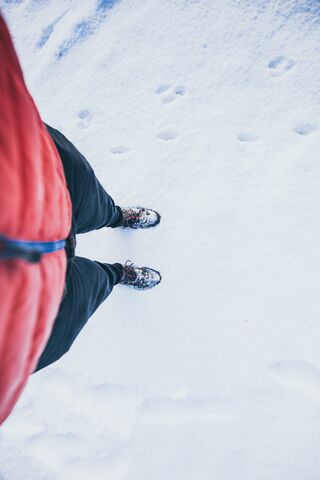Depression
9 of the Best Ways to Build Mental Strength in Winter
We sometimes underestimate our own ability to cope and respond to difficulties.
Posted December 22, 2020

With the onset of winter, with its increasingly cold weather and fewer daylight hours, it's no surprise that many people find themselves feeling low or less happy than in the summer months.
Winter weather can also make coping with mental health conditions like anxiety, depression, or bipolar disorder more difficult. The pandemic doesn’t help.
However, we sometimes underestimate our own ability to cope and respond to difficulties. There is vast evidence that we can cultivate a great deal of well-being in the face of suffering of all kinds.
Here are nine of the best ways to build mental strength in winter.
To calm the mind, you have to calm the body. Physical activity can help lift your mood and energy levels. Research suggests that outdoor exercise, such as cycling or jogging, can be as effective as antidepressants in treating depression.
Experiencing depression can reduce your desire to be physically active, especially as exercise can be less appealing during winter. While you may not feel like it, physical activity can be very effective in lifting your mood and increasing your energy levels. If running in winter isn't for you, activities such as yoga or dance have also been shown to have positive benefits for people's mental health, with easily accessible virtual classes on YouTube and elsewhere.
Make the most of natural light. Walk for an hour a day, especially at midday and on brighter days. Also, sit near windows when possible.

Enjoyable activities are critically important. Apart from our many hours of work, we need a balance of low-consequence pleasure. Make time for these small but valuable pleasures.
Meaningful accomplishments feed the soul. Your professional work may fulfill this need. Otherwise, do not underestimate the value of routines and chores that help you achieve points in your day when you can say, with satisfaction, “I got that done.”
Avoid high-consequence coping. Wrongful use of pharmaceutical or even illicit drugs, or drinking too much alcohol, are classic examples. Additionally, social withdrawal or — its opposite — social immersion at the expense of rest and privacy also can take a toll on wellbeing.
Be gracious. Assume others are doing the best they can. These are unusual and stressful times. While not implicitly condoning horrible behavior, the world could sure use a lot more civility and diplomacy in the ways we navigate our social and political interactions.
Take time to laugh. Remember something ridiculously funny that happened once, and retell the story. Be on the lookout for the absurdity in life, and allow yourself a chuckle when you spot it. And by all means, watch a comedy every now and again.
Talk to someone. FaceTime or Zoom with a good old friend you haven’t connected with for months or years to relax and be yourself with. It's easy to become more isolated during the winter, but technology has provided new ways to cope through connection if we’ll use them.
End each day with gratitude. Writing down one thing you are grateful for each night before bed leads to increased positive emotions the next day, and that is what you call low risk, high reward.

You have the capacity for not only taking courage to act boldly by making small changes as you cope during a challenging time. Far more, the limits of your own possibility may shock you.
That being said, never mistake courage for the absence of dread or occasional feelings of despair. Similarly, never mistake strength for the absence of help. The truth is that we always do better when we acknowledge our realities and challenges, in all their complexity, as well as our limitations. We also do exceedingly better when we remain open to new experiences, and to others.


